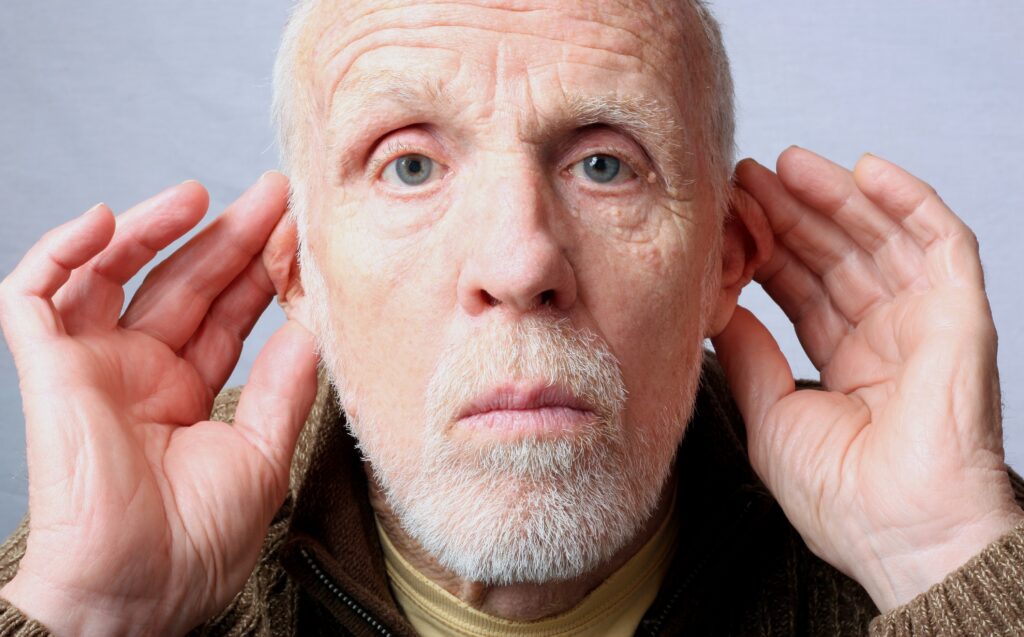We all know allergies can make us sneeze, itch, and feel uncomfortable. But not many realize that they can also affect our hearing. This link between allergies and hearing is often overlooked, but it’s important to understand.
In this article, we’ll dive into the big question: can allergies cause hearing loss in one ear or both? And if so, how to treat hearing loss due to allergies?
Let’s uncover the answers together.
In this article, we are discussing:
- The connection between allergies and hearing loss.
- Common symptoms of allergy-induced hearing issues.
- Effective treatments for hearing loss caused by allergies.
- Tips to prevent and manage allergy-related hearing problems.
Understanding Allergies
Allergies are essentially our body’s heightened reactions to certain substances, known as allergens. When these allergens enter our system, our immune response can go into overdrive, releasing chemicals that result in various symptoms. These reactions can range from sneezing and itching to more severe responses, depending on the individual and the allergen involved.
While many of us are familiar with the common symptoms of allergies, their potential impact on our auditory system is less widely recognized. Before we delve into this connection, if you’re looking to understand allergies in greater depth, we recommend checking out our in-depth guide on allergies and their causes.
Now, moving on to the big question.
Can Allergies Cause Hearing Loss?
It might seem surprising, but the answer is yes. Allergies can indeed impact our hearing.
When we have an allergic reaction, parts of our body can swell up, including a tiny tube in our ears called the Eustachian tube. This tube helps keep our ears clear and balanced. But when it gets blocked because of allergies, fluid can get trapped in our ears.
This trapped fluid can make our ears feel full and sounds seem quieter or muffled. In some cases, people might even notice that allergies cause hearing loss in one ear more than the other. It’s like when one nostril feels more blocked than the other.
The good news is that this kind of hearing loss is usually temporary. But it’s still important to take it seriously. If we ignore it for too long, it could lead to bigger problems down the road.
Symptoms of Allergy-Induced Hearing Loss
When allergies affect our hearing, it’s not always easy to spot right away. But being aware of the signs can help you take action sooner.
Here are some symptoms to watch out for:
- Muffled Hearing: Everything sounds like it’s coming from far away or through a barrier.
- Feeling of Fullness in the Ear: It’s similar to the sensation you get when you’re on an airplane and your ears feel plugged.
- Tinnitus: This is a fancy word for ringing in the ears. It’s like a constant background noise that won’t go away.
- Dizziness or Balance Issues: Our ears play a big role in keeping us balanced. When they’re not working right, we might feel a bit wobbly.
If you notice any of these symptoms, especially after being exposed to common allergens, it might be a sign that your allergies are affecting your hearing.
The next step? Figuring out how to treat hearing loss due to allergies. But more on that in the upcoming section!

Addressing Allergy-Related Hearing Loss: Steps to Take
Realizing that allergies might be affecting your hearing can be concerning. However, with the right approach, you can manage and even reverse the symptoms. Here’s a step-by-step guide on how to treat hearing loss due to allergies:
Consultation with a Specialist
If you suspect your hearing loss is allergy-related, the first step is to see an ear, nose, and throat (ENT) specialist. They can provide a proper diagnosis and recommend treatments.
Allergy Testing
To effectively treat the issue, it’s essential to identify the specific allergens causing the reaction. An allergist can conduct tests to pinpoint these triggers.
Medications and Treatments
Depending on the severity and cause, treatments can range from antihistamines to decongestants. For those who experience recurring or severe allergic reactions, allergy shots might be an effective solution.
Lifestyle Changes
Prevention is key. By identifying and avoiding your allergen triggers, you can reduce the risk of experiencing symptoms. This might mean staying indoors during high pollen counts or using allergen-proof bedding.
Remember, while allergies can be a nuisance, they don’t have to compromise your quality of life or hearing. With the right knowledge and proactive measures, you can enjoy clear hearing and an allergy-free life.
Prevention Tips for Allergy-Induced Hearing Loss
While treating allergy-related hearing issues is essential, prevention remains the best approach. By taking proactive steps, you can minimize the risk of allergies affecting your hearing. Here are some practical tips to consider:
- Keeping your ears clean helps prevent wax buildup, which can exacerbate hearing issues when allergies strike.
- If you’re aware of specific triggers, such as pollen or pet dander, take measures to avoid them. This might mean staying indoors during peak pollen times or ensuring your living space is pet dander-free.
- Using Air Purifiers can help reduce indoor allergens, especially if you’re sensitive to dust mites or pet dander.
- Keep windows closed during high pollen seasons. This simple step can significantly reduce your exposure to outdoor allergens.
- Many weather apps and websites provide daily pollen and allergen forecasts. Being informed allows you to take precautions on high-risk days.
By integrating these preventive measures into your daily routine, you can safeguard your hearing and overall well-being from the adverse effects of allergies.
Conclusion
Allergies, while often seen as mere seasonal nuisances, can have a profound impact on various aspects of our health, including our hearing. Recognizing the link between allergies and hearing loss is the first step towards proactive care. By understanding the symptoms and knowing how to treat hearing loss due to allergies, you equip yourself with the tools to maintain optimal auditory health.
Prevention is always better than cure. So, arm yourself with the right tips, stay vigilant.
If you or your loved one are experiencing ear discomfort or suspect that allergies might be affecting your ear health, it’s essential to seek expert guidance. At Arizona Allergies Associates, our team of specialists is here to help. Don’t let allergies impact your quality of life; explore the treatments available and take the first step towards better health.



